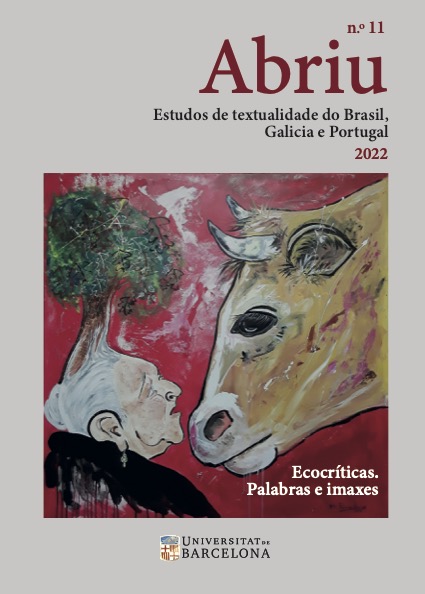Designing Satisfaction
[Hidden] Technology in the «Cantigas» of Pero Meogo
DOI:
https://doi.org/10.1344/abriu2022.11.9Palavras-chave:
Galician-Portuguese lyric, cantigas d’amigo, strophic design, leixa-pren, cognition.Resumo
This paper examines the relationships between cognition and the design of verses, strophes, poems and an entire sequence in the cantigas d’amigo of the 13th century Galician poet Pero Meogo. The brain rewards itself for correctly predicting phenomena. Tension is greatest when a surprise delays a predicted event. In the ninth and last cantiga of Meogo we find unique virtuosity in the handling of leixa-pren and a unique change in rhyme-scheme just before the end of the poem and the sequence. There is, moreover, an extraordinary correspondence between Meogo 9 and a mother-daughter dialogue in a Serbian ballad transcribed in the early 18th century.
Downloads
Publicado
Como Citar
Edição
Seção
Licença
Copyright (c) 2021 Abriu: estudos de textualidade do Brasil, Galicia e Portugal

Este trabalho está licenciado sob uma licença Creative Commons Attribution-NonCommercial-NoDerivatives 4.0 International License.
Os autores conservam os direitos e outorgam a Abriu: estudos de textualidade do Brasil, Galicia e Portugal o direito da primeira publicação, a partir da qual a obra estará disponível simultaneamente sob uma Licença de Reconhecimento-NãoComercial-SemObraDerivada (CC BY-NC-ND) que permite partilhar a obra com terceiros desde que reconheçam a autoria e a publicação inicial nesta revista.



